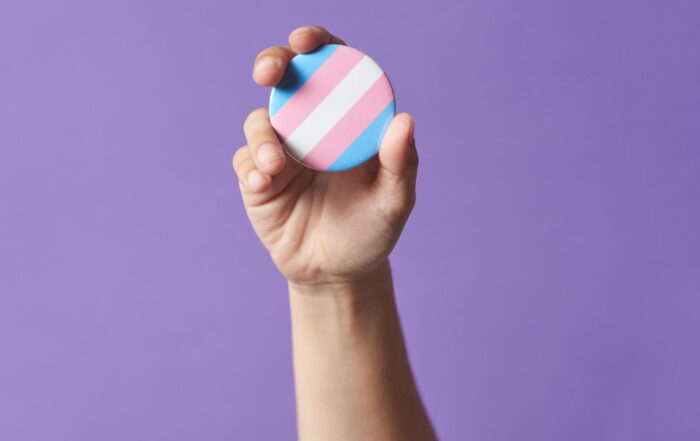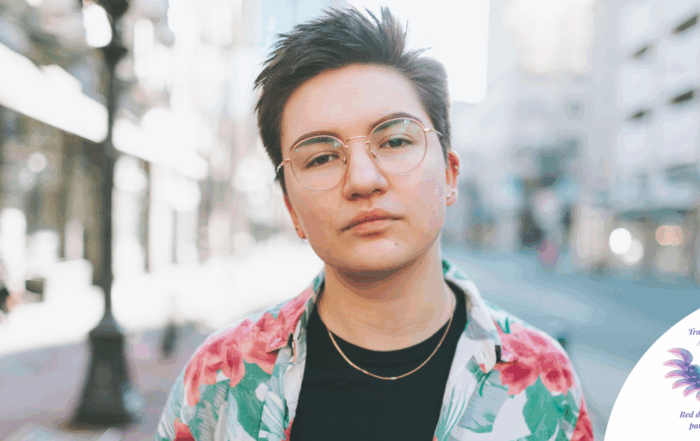I just woke up and watched the news, which—if you’re like me—you’ll agree is difficult to watch nowadays. But this time, there was something beautiful, for a change: Robert De Niro’s daughter announced that she’s transitioning, and Robert is supporting her all the way. He said:
“I love my daughter; what’s there to think?”
Wouldn’t it be beautiful to live in a world where trans joy is celebrated like that?
For a long time, when we talked about trans lives, we talked about struggle and surviving the battles against discrimination and violence. While this is still true, it’s not the whole story. Trans persons are not only defined by what they overcome, but by the expanding experience and the euphoria of living authentic lives.
Remember that mass media is not necessarily showing you the truth, but the ideas they want to put in your mind for their purposes—whatever they are—whether selling you something or suppressing a minority to gain political power. So they show horrific stories of trans people with broken lives. And people who are not directly affected by having a trans relative or being trans themselves are not exactly concerned with judging whether that’s true or not, so they go by it, and a prejudice is formed in their minds.
Sensationalism gets people’s attention very easily. The other day, a person told me about a video of a transfeminine person claiming she had gotten pregnant. And my question was, “And why did you dedicate a second of your time to that?”
Look, being trans doesn’t make you good or bad, so there can be people who use social media in a way that doesn’t help the trans community. But why don’t people easily dismiss them and instead take the stupid video as if it defines the whole community? The answer is transphobia! It confirms their prejudice, so they have just found the perfect excuse to let it all out.
But an honest view of the trans experience will let you understand why we’re not silly people or just surviving—we’re blooming.
Imagine a person experiencing their gender dysphoria in the dark, judging the situation and deciding that it’s unthinkable to tell someone how they feel—even their loved ones and closest friends. They dream of wearing the right clothes and probably fantasize about changing their name and gender marker. How would it feel to change your body in the right direction, even with gender-affirming surgeries? But it all looks so out of reach.
This process could take years, during which you watch in desperation as your body changes in the wrong direction. If your gender identity is female, imagine how you’d feel to start growing a beard or hear your voice going deeper and deeper. If transmasculine, imagine the panic you’d feel to grow breasts! Perhaps you’re still on time to take blockers, but that would mean coming out to your parents and risking rejection. The clock is ticking, and the opportunity will be gone forever.
Perhaps you’re in your late teens, before you transition. You want to date like other kids, but it’s impossible to convey confidence or connect with the person you like when you don’t even feel yourself. Perhaps your date thinks you’re a good person, but they cannot see you as eligible because there’s something off—even if they can’t tell what. Maybe it’s something unconscious for them, but things don’t add up when they look at you.
You may feel forced to play a gender role that you despise—so far removed from your true personality—but what can you do? Your gender identity and expression are not in alignment, and you could look even weirder trying to be yourself in your current presentation. So you decide to play a character. Of course, it’ll never take you far.
Time passes, and you quit dating and parties altogether while you shrink in the dark, thinking it’ll never happen for you.
I’m not exaggerating! This is a pretty standard pre-transition life.
In more dramatic cases, the dysphoria is so excruciating that people take showers wearing underwear or fill the bathroom with steam to avoid looking at their bodies. People also avoid not only the physical mirror but the social one that shows them the wrong reflection. It’s common to develop a mental health condition like depression, an eating disorder, or panic attacks.
After a story like that, I remember the first day I saw myself wearing a mini skirt in public. It was at the Rocky Horror Show party at my university in England—before my transition, and even before I understood that what I was feeling was called Gender Incongruence. My friends explained that the theme of the party was drag. Very excited inside, but trying to dissimulate, I said yes. They lent me a miniskirt and did my makeup—because I had no clue.
When I saw myself in the club’s big mirror, I was in awe: “This is what’s right!” I told myself.
Not only was it a fun night, but I was magnetic! I hooked up easily with three different women! Unfortunately, my friends offered an explanation that satisfied me, and I let the issue rest for many years: “Oh, they were the closeted lesbians living their fantasy.”
But no, that wasn’t it. Years later, I was able to decipher it together with my psychologist: by being myself, I was projecting a totally different personality and confidence, which was irresistible. I was on my frequency—my true self—and by tuning into that frequency, which is unique and personal, I unlocked whatever powers I had. That’s why it’s useless to try to imitate other people; they have their powers, and you have yours. They are unlocked only by authenticity.
To move from dysphoria to euphoria, you don’t need something radical—and that’s the beauty. When your image in the physical or the social mirror becomes affirming, even in the tiniest details, dysphoria transforms into euphoria.
One day, someone uses your correct pronoun or name, and it’s music to your ears. Perhaps your family, who rejected you at the beginning, finally starts to assimilate reality. After 12 years, the other day my mom called me “Julie.” It doesn’t matter how much she harmed me in the past—it felt as if she had finally accepted who I am and even used a diminutive form of my name, which was cute.
I remember the unending hours learning to do my makeup with video tutorials—the frustration of getting it wrong, removing it, trying again, and after 10 times suddenly getting it right and seeing the result!
Those tiny milestones tell you that it could happen! This can be you—not hiding in your room, but living your everyday life, glowing!
It’s like a pressure cooker effect. After so many frustrating years in the dark, the pressure is released even by a coincidence—when you start changing your expression and go into a department store and the person at the entrance greets you with: “How are you doing today, madam? I’m sorry—mister! I’m sorry—madam!” while they blush, not knowing where to hide. And you think: It’s working!
That is the joy that will take you to the other shore. And it’s your fundamental human right to feel like that. It gives you inner peace. You feel stronger and more vital while building healthier relationships and performing better in all areas of your life. Brené Brown said it well:
“Authenticity is the daily practice of letting go of who we think we’re supposed to be and embracing who we are.”
Trans people deserve not only to live, but to thrive, to laugh, to dance, to shine! Their authenticity is sacred and teaches a lesson to everyone that—no matter the opposition—it is light in the middle of the darkness.
I just woke up and watched the news, which—if you’re like me—you’ll agree is difficult to watch nowadays. But this time, there was something beautiful, for a change: Robert De Niro’s daughter announced that she’s transitioning, and Robert is supporting her all the way. He said:
“I love my daughter; what’s there to think?”
Wouldn’t it be beautiful to live in a world where trans joy is celebrated like that?
For a long time, when we talked about trans lives, we talked about struggle and surviving the battles against discrimination and violence. While this is still true, it’s not the whole story. Trans persons are not only defined by what they overcome, but by the expanding experience and the euphoria of living authentic lives.
Remember that mass media is not necessarily showing you the truth, but the ideas they want to put in your mind for their purposes—whatever they are—whether selling you something or suppressing a minority to gain political power. So they show horrific stories of trans people with broken lives. And people who are not directly affected by having a trans relative or being trans themselves are not exactly concerned with judging whether that’s true or not, so they go by it, and a prejudice is formed in their minds.
Sensationalism gets people’s attention very easily. The other day, a person told me about a video of a transfeminine person claiming she had gotten pregnant. And my question was, “And why did you dedicate a second of your time to that?”
Look, being trans doesn’t make you good or bad, so there can be people who use social media in a way that doesn’t help the trans community. But why don’t people easily dismiss them and instead take the stupid video as if it defines the whole community? The answer is transphobia! It confirms their prejudice, so they have just found the perfect excuse to let it all out.
But an honest view of the trans experience will let you understand why we’re not silly people or just surviving—we’re blooming.
Imagine a person experiencing their gender dysphoria in the dark, judging the situation and deciding that it’s unthinkable to tell someone how they feel—even their loved ones and closest friends. They dream of wearing the right clothes and probably fantasize about changing their name and gender marker. How would it feel to change your body in the right direction, even with gender-affirming surgeries? But it all looks so out of reach.
This process could take years, during which you watch in desperation as your body changes in the wrong direction. If your gender identity is female, imagine how you’d feel to start growing a beard or hear your voice going deeper and deeper. If transmasculine, imagine the panic you’d feel to grow breasts! Perhaps you’re still on time to take blockers, but that would mean coming out to your parents and risking rejection. The clock is ticking, and the opportunity will be gone forever.
Perhaps you’re in your late teens, before you transition. You want to date like other kids, but it’s impossible to convey confidence or connect with the person you like when you don’t even feel yourself. Perhaps your date thinks you’re a good person, but they cannot see you as eligible because there’s something off—even if they can’t tell what. Maybe it’s something unconscious for them, but things don’t add up when they look at you.
You may feel forced to play a gender role that you despise—so far removed from your true personality—but what can you do? Your gender identity and expression are not in alignment, and you could look even weirder trying to be yourself in your current presentation. So you decide to play a character. Of course, it’ll never take you far.
Time passes, and you quit dating and parties altogether while you shrink in the dark, thinking it’ll never happen for you.
I’m not exaggerating! This is a pretty standard pre-transition life.
In more dramatic cases, the dysphoria is so excruciating that people take showers wearing underwear or fill the bathroom with steam to avoid looking at their bodies. People also avoid not only the physical mirror but the social one that shows them the wrong reflection. It’s common to develop a mental health condition like depression, an eating disorder, or panic attacks.
After a story like that, I remember the first day I saw myself wearing a mini skirt in public. It was at the Rocky Horror Show party at my university in England—before my transition, and even before I understood that what I was feeling was called Gender Incongruence. My friends explained that the theme of the party was drag. Very excited inside, but trying to dissimulate, I said yes. They lent me a miniskirt and did my makeup—because I had no clue.
When I saw myself in the club’s big mirror, I was in awe: “This is what’s right!” I told myself.
Not only was it a fun night, but I was magnetic! I hooked up easily with three different women! Unfortunately, my friends offered an explanation that satisfied me, and I let the issue rest for many years: “Oh, they were the closeted lesbians living their fantasy.”
But no, that wasn’t it. Years later, I was able to decipher it together with my psychologist: by being myself, I was projecting a totally different personality and confidence, which was irresistible. I was on my frequency—my true self—and by tuning into that frequency, which is unique and personal, I unlocked whatever powers I had. That’s why it’s useless to try to imitate other people; they have their powers, and you have yours. They are unlocked only by authenticity.
To move from dysphoria to euphoria, you don’t need something radical—and that’s the beauty. When your image in the physical or the social mirror becomes affirming, even in the tiniest details, dysphoria transforms into euphoria.
One day, someone uses your correct pronoun or name, and it’s music to your ears. Perhaps your family, who rejected you at the beginning, finally starts to assimilate reality. After 12 years, the other day my mom called me “Julie.” It doesn’t matter how much she harmed me in the past—it felt as if she had finally accepted who I am and even used a diminutive form of my name, which was cute.
I remember the unending hours learning to do my makeup with video tutorials—the frustration of getting it wrong, removing it, trying again, and after 10 times suddenly getting it right and seeing the result!
Those tiny milestones tell you that it could happen! This can be you—not hiding in your room, but living your everyday life, glowing!
It’s like a pressure cooker effect. After so many frustrating years in the dark, the pressure is released even by a coincidence—when you start changing your expression and go into a department store and the person at the entrance greets you with: “How are you doing today, madam? I’m sorry—mister! I’m sorry—madam!” while they blush, not knowing where to hide. And you think: It’s working!
That is the joy that will take you to the other shore. And it’s your fundamental human right to feel like that. It gives you inner peace. You feel stronger and more vital while building healthier relationships and performing better in all areas of your life. Brené Brown said it well:
“Authenticity is the daily practice of letting go of who we think we’re supposed to be and embracing who we are.”
Trans people deserve not only to live, but to thrive, to laugh, to dance, to shine! Their authenticity is sacred and teaches a lesson to everyone that—no matter the opposition—it is light in the middle of the darkness.









